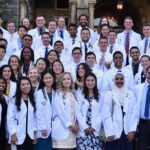Sports medicine is a specialized field that plays a crucial role in helping athletes and active individuals maintain optimal performance and recover from injuries. For those considering a career as a sports medicine doctor in Georgia, it’s essential to understand the certification requirements and the journey to becoming a licensed professional. In this guide, we’ll explore Georgia’s certification process for sports medicine doctors and provide useful insights for aspiring physicians.
What Is Sports Medicine?

Sports medicine is a branch of medicine that focuses on the prevention, diagnosis, and treatment of sports-related injuries. Sports medicine doctors are trained to care for athletes and active individuals of all ages, ensuring that they can perform at their best while minimizing the risk of injury.
These specialists treat a wide range of conditions, including joint injuries, sprains, strains, fractures, and overuse injuries. They also work to enhance athletic performance, offering guidance on fitness, nutrition, and injury prevention.
Georgia’s Certification for Sports Medicine Doctors
Becoming a certified sports medicine doctor in Georgia requires meeting several education and licensure requirements. Below is an overview of the key steps involved in obtaining certification.
- Education and Qualifications
Aspiring sports medicine doctors must first complete a bachelor’s degree, typically in a related field like biology or kinesiology. Afterward, they must attend an accredited medical school to obtain a Doctor of Medicine (M.D.) or Doctor of Osteopathic Medicine (D.O.) degree. Medical school typically lasts four years and involves both classroom education and hands-on clinical experience. - Residency and Fellowship Programs
After completing medical school, graduates must complete a residency program in a field such as orthopedic surgery, family medicine, or internal medicine. This residency typically lasts between three to five years. Once the residency is complete, doctors must pursue additional fellowship training in sports medicine, which usually lasts one to two years. This fellowship offers specialized training in managing athletic injuries and working with sports teams. - Licensure and Exams
In Georgia, all medical doctors (M.D.s) and osteopathic doctors (D.O.s) must obtain a state license to practice medicine. This involves passing the United States Medical Licensing Examination (USMLE) for M.D.s or the Comprehensive Osteopathic Medical Licensing Examination (COMLEX) for D.O.s. In addition, doctors must also meet continuing medical education (CME) requirements to maintain their licensure.
Athletic Training Programs in Georgia
While becoming a sports medicine doctor requires a significant educational journey, Georgia also offers a variety of athletic training programs that can serve as a stepping stone for those interested in sports medicine. Athletic training programs typically involve learning how to prevent and treat sports-related injuries and provide rehabilitation to athletes.
These programs are often accredited by the Commission on Accreditation of Athletic Training Education (CAATE) and are available at various colleges and universities in Georgia. Graduates of these programs often go on to work as athletic trainers or pursue further studies in sports medicine.
By completing an accredited athletic training program, students gain hands-on experience and an understanding of the physical demands on athletes. This experience can be incredibly beneficial for those who later wish to transition into a sports medicine career.
Steps to Becoming a Sports Medicine Doctor in Georgia
If you’re planning to become a sports medicine doctor in Georgia, here’s a step-by-step guide to help you navigate the process:
- Earn a Bachelor’s Degree – Choose a science-related major to build a strong foundation for medical school.
- Complete Medical School – Attend an accredited medical school and earn your M.D. or D.O. degree.
- Complete a Residency Program – After medical school, complete a residency in a relevant specialty such as orthopedic surgery or family medicine.
- Pursue Fellowship Training – Enroll in a sports medicine fellowship to gain specialized knowledge in treating sports injuries and enhancing athletic performance.
- Obtain Licensure – Pass the necessary exams (USMLE or COMLEX) and obtain licensure to practice medicine in Georgia.
- Consider Board Certification – While not required, becoming board-certified in sports medicine through the American Board of Family Medicine or other related boards can enhance your professional standing.
Career Outlook for Sports Medicine Doctors in Georgia
Sports medicine doctors in Georgia enjoy a promising career outlook. With a growing interest in physical fitness and an increase in recreational sports participation, the demand for sports medicine specialists continues to rise. According to the U.S. Bureau of Labor Statistics, the demand for physicians, including sports medicine doctors, is expected to grow by 4% over the next decade.
Salaries for sports medicine doctors in Georgia vary depending on experience, location, and specialty, but many professionals in this field earn competitive wages. Furthermore, there are opportunities for career advancement, with some doctors choosing to work with professional sports teams or pursue academic and research positions.
Conclusion
Georgia’s certification process for sports medicine doctors requires dedication and an extensive educational journey. From completing medical school to undergoing specialized fellowship training, the path to becoming a sports medicine doctor is rigorous but rewarding. As the field of sports medicine continues to grow, those pursuing this career in Georgia can look forward to fulfilling work, opportunities for advancement, and the chance to make a meaningful impact on the health and well-being of athletes and active individuals.
If you’re ready to start your journey toward becoming a sports medicine doctor, the first step is to explore accredited programs and licensure requirements. Whether you’re interested in treating elite athletes or helping everyday individuals stay active, sports medicine offers a wide range of exciting possibilities.



